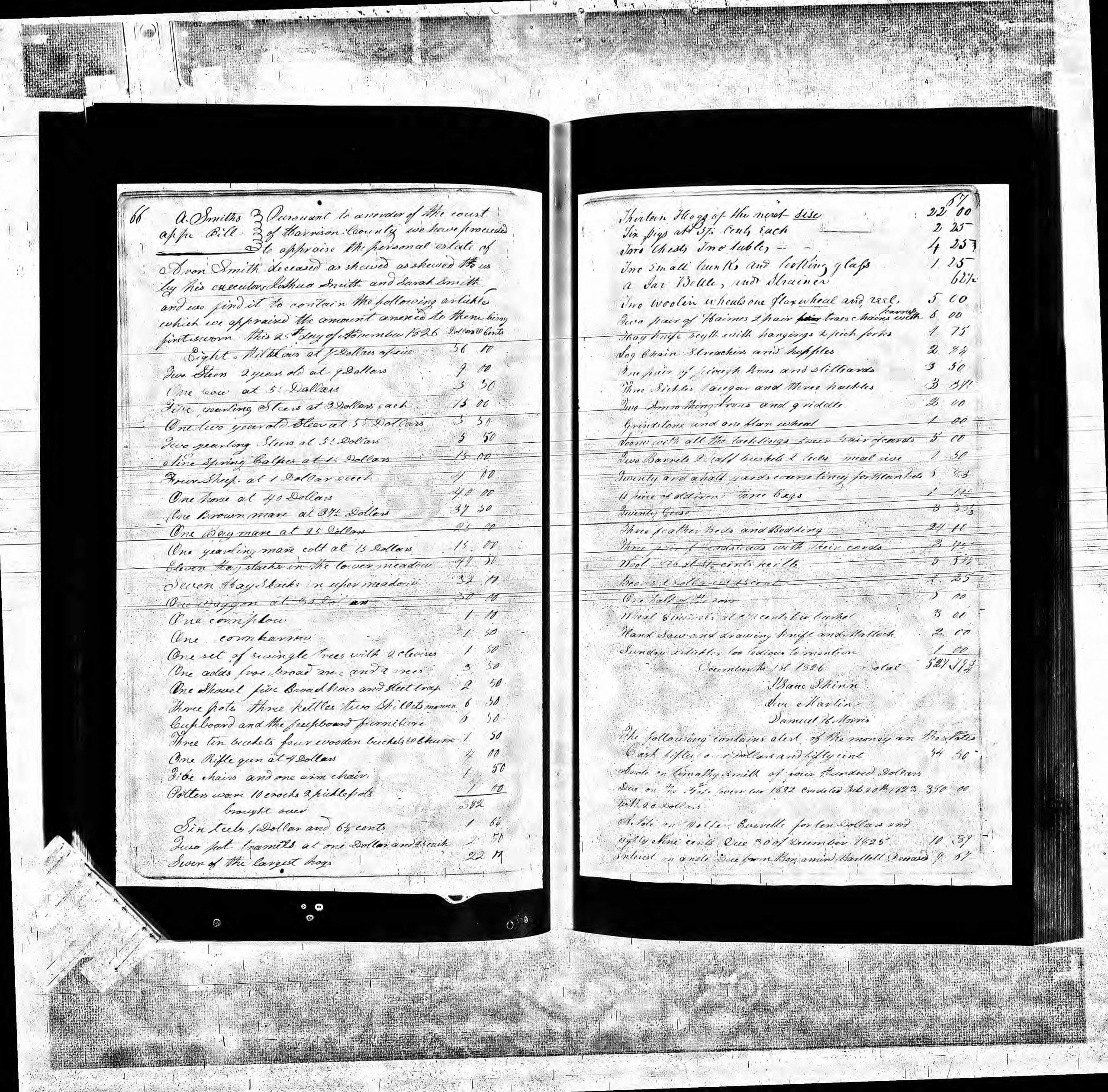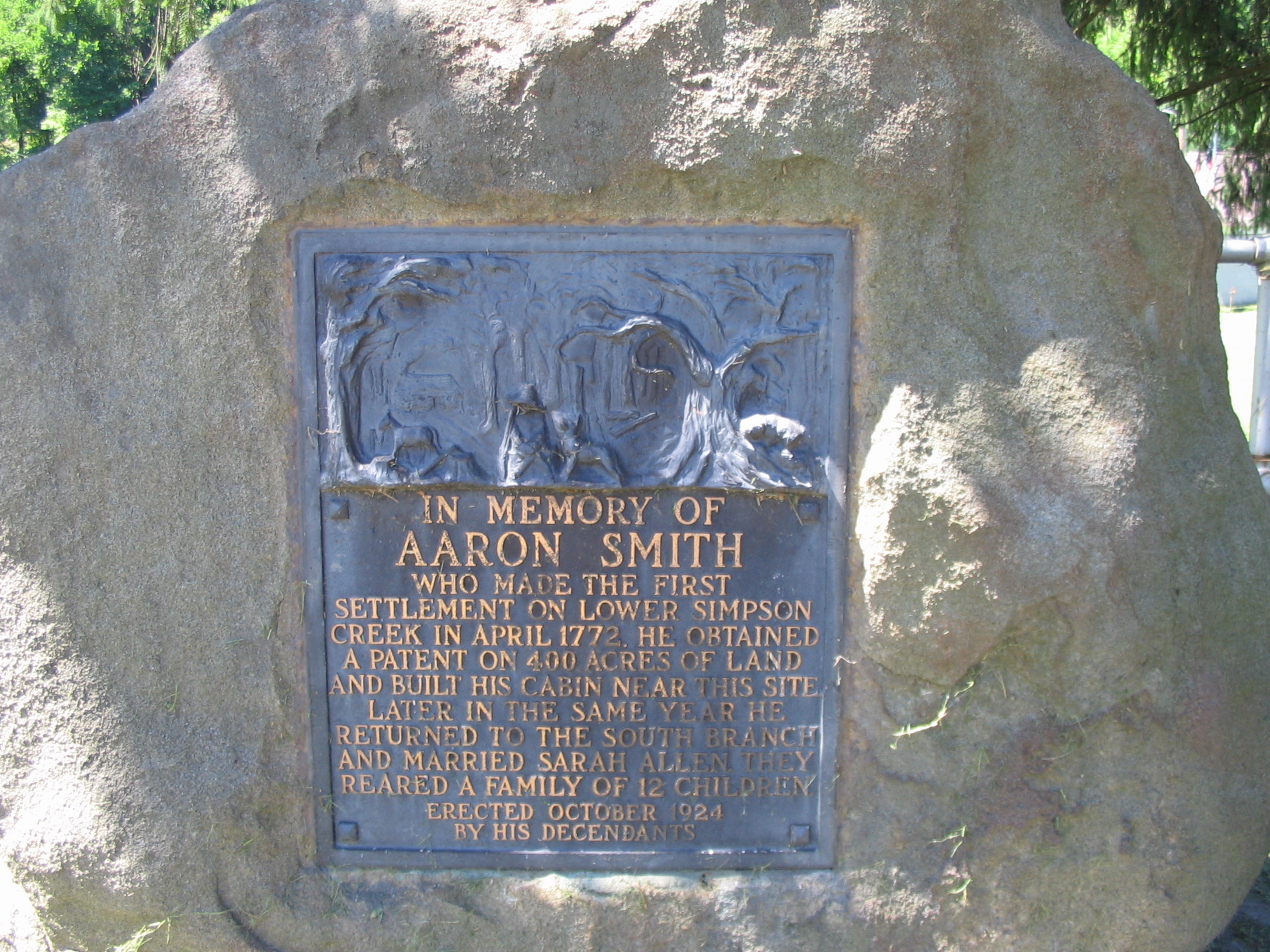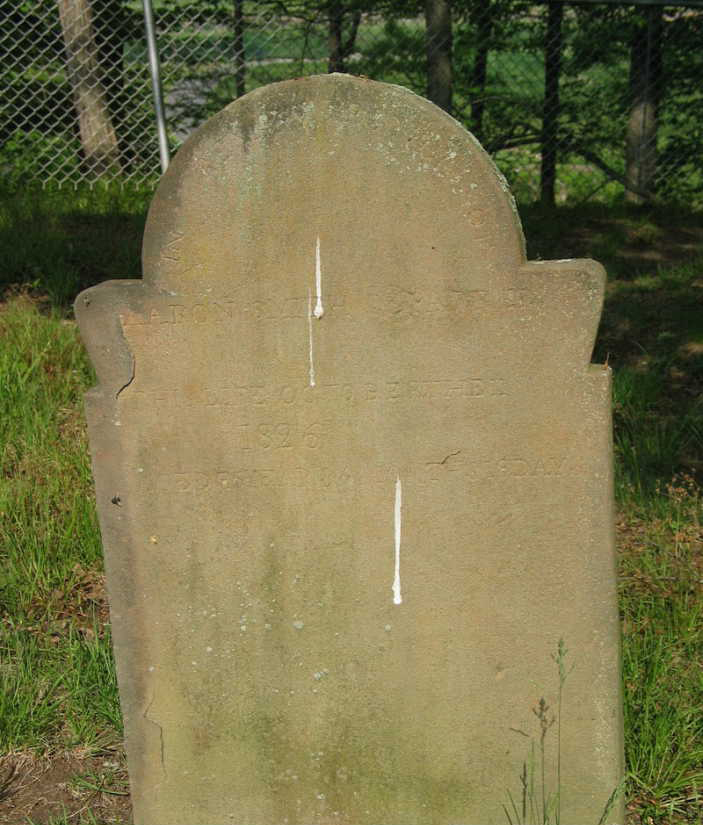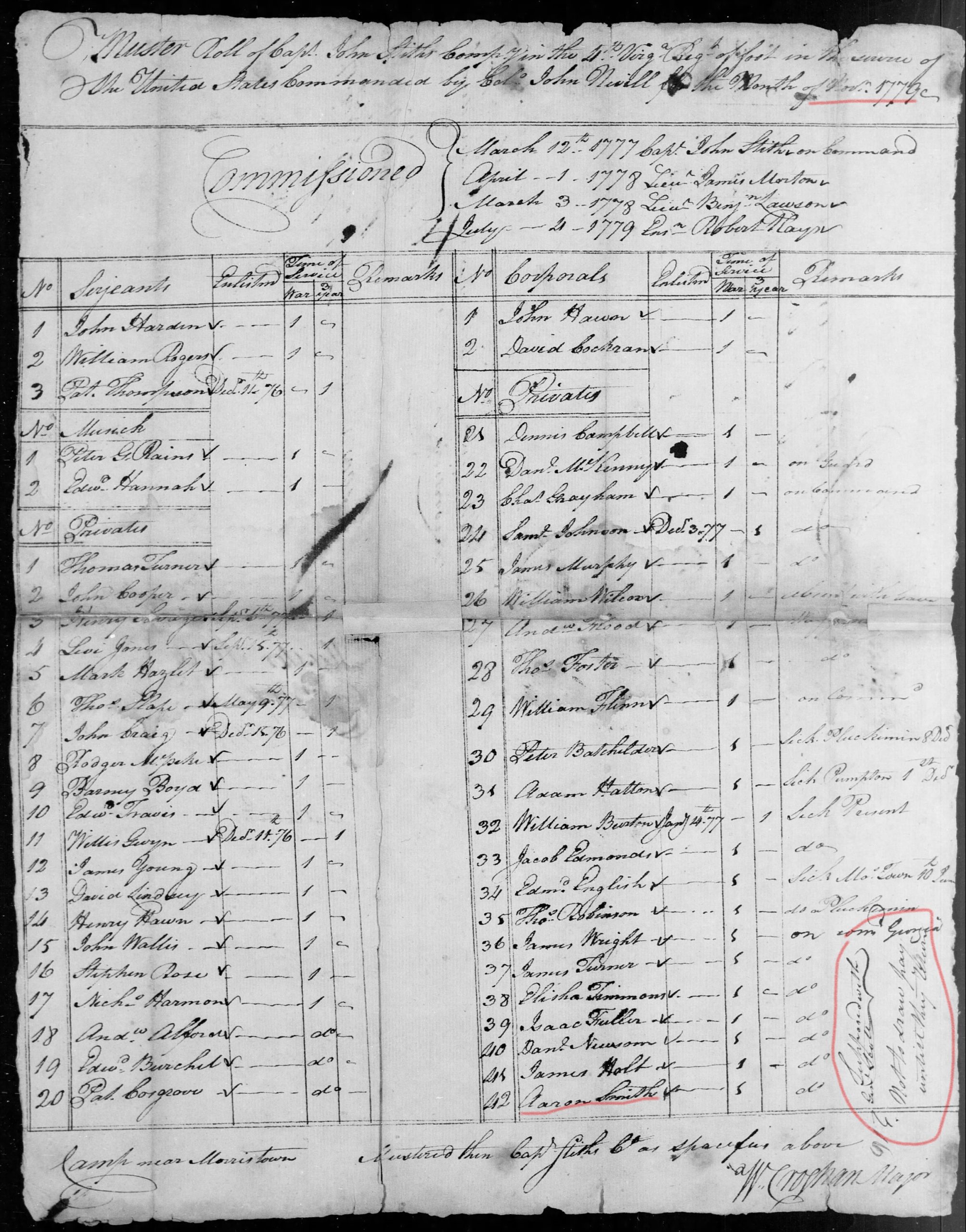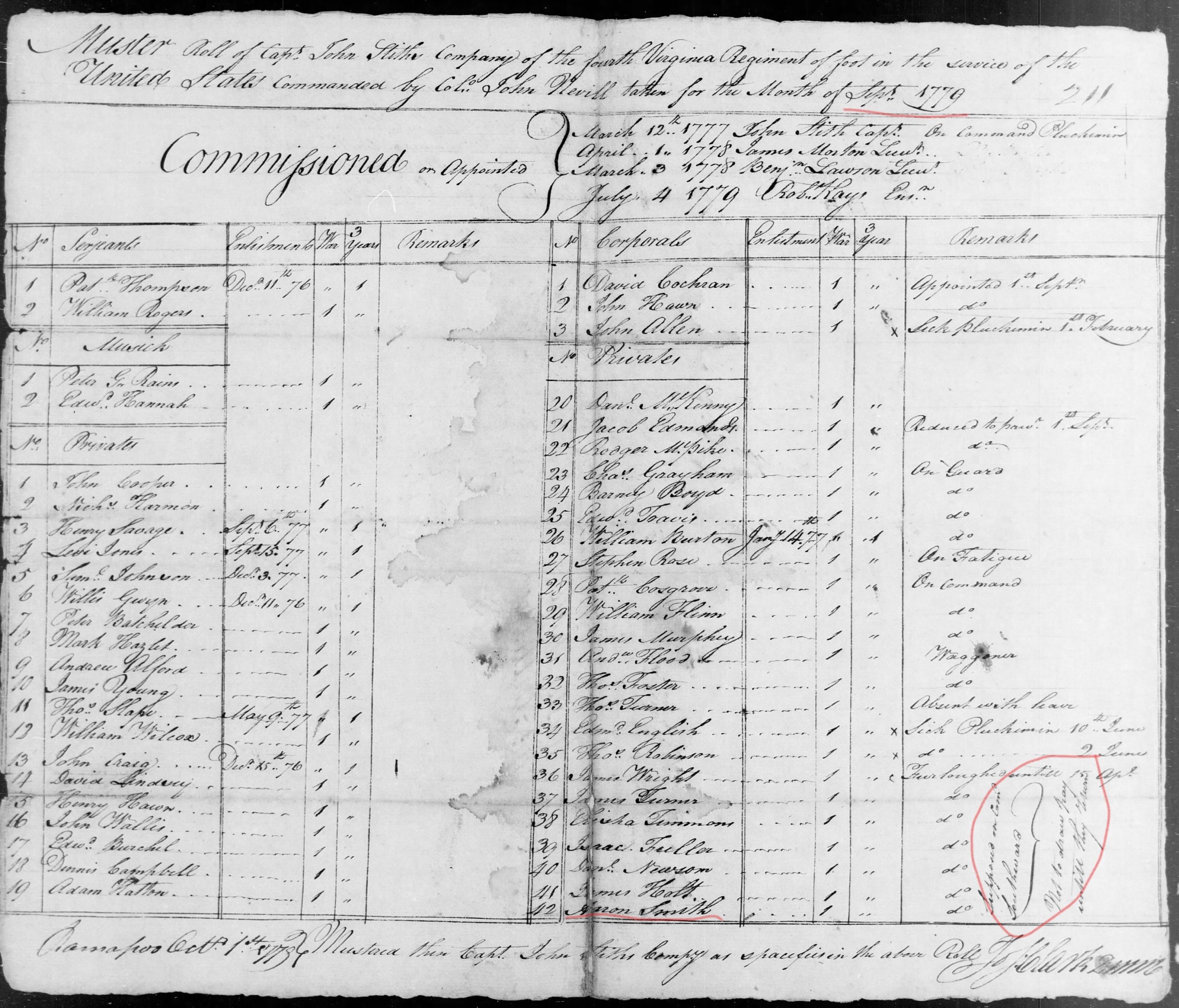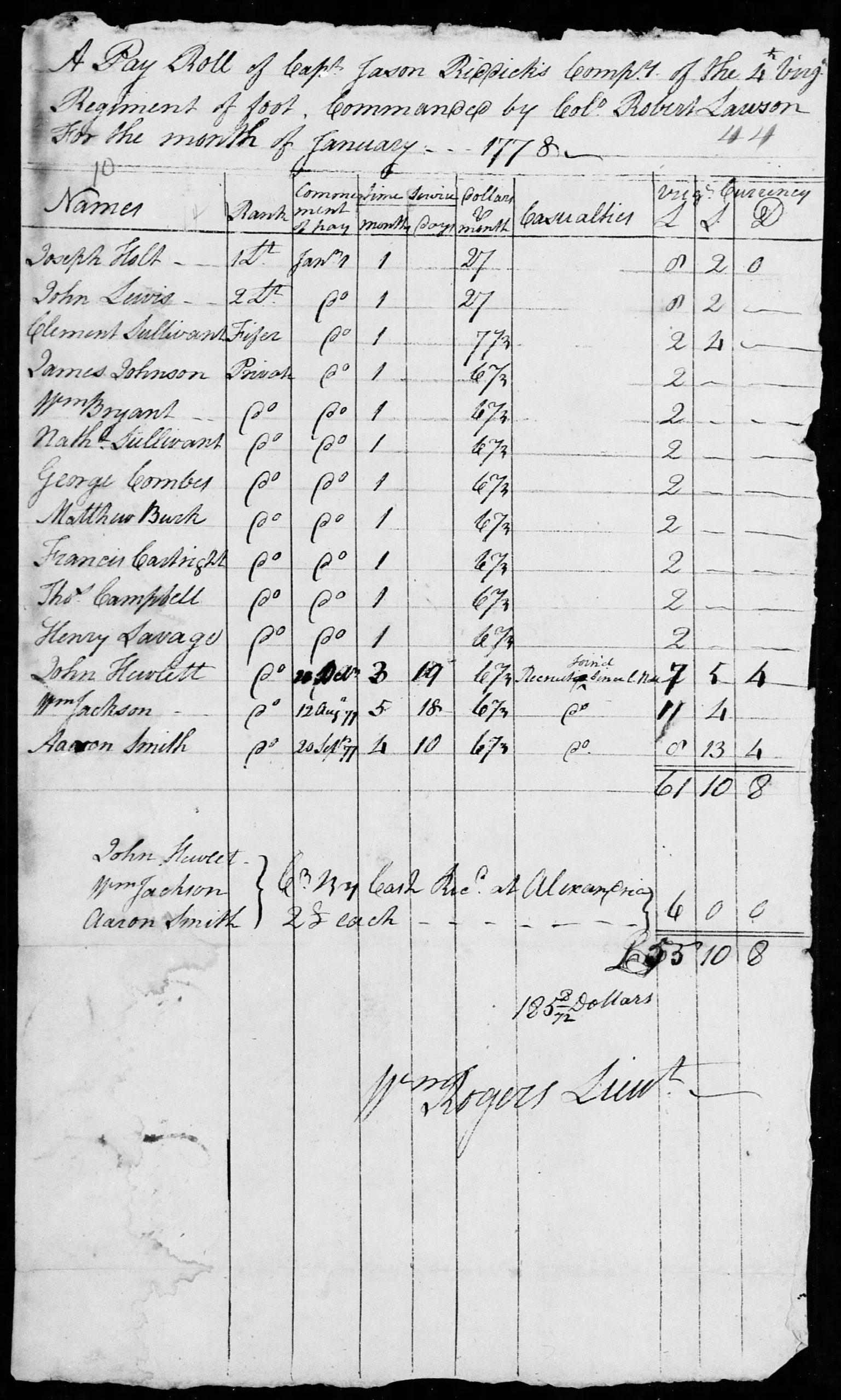Aaron emerged from Valley Forge with his Regiment in June, 1778. His Regiment was combined as the 4th, 8th, and 12th VA under Colonel James Wood.
They fought on June 28, 1778 at the Battle of Monmouth in the center of the line under Major General Charles Lee in the morning and with General Anthony Wayne in the afternoon. He was sent south in December 1778. A group of 750 soldiers from Virginia and North Carolina Regiments were sent to Charleston, South Carolina, to reinforce General Lincoln, arriving on April 6, 1779. Aaron is listed in Lieutenant Charles Stockley’s Book of Accounts as one of the Virginia Continental Line who were paid for services in February, March and April of 1783. The majority of the 4th Virginia Regiment were captured at the Siege of Charleston and imprisoned. He may have been one of these prisoners.
After the war, Aaron returned to his homestead farm in Harrison County, Virginia (later West Virginia). He and his wife, Sarah Allen, raised 10 sons and two daughters. Aaron and Sarah’s great grandson, David Smith Lowe, was a Vice President representing Lewis County in a successful effort to separate West Virginia from Virginia and keep West Virginia in the Union during the Civil War. Many of Aaron’s descendants remain in West Virginia today.
Aaron died on October 11, 1826, in Harrison County, Virginia. His estate inventory lists evoke a picture of the resplendent pioneer farm he cultivated, including “Eleven haystacks in the Lower Meadow” and “Seven haystacks in the Upper Meadow.” Aaron’s original headstone is the oldest legible headstone in the Smith Cemetery in Harrison County, West Virginia.


